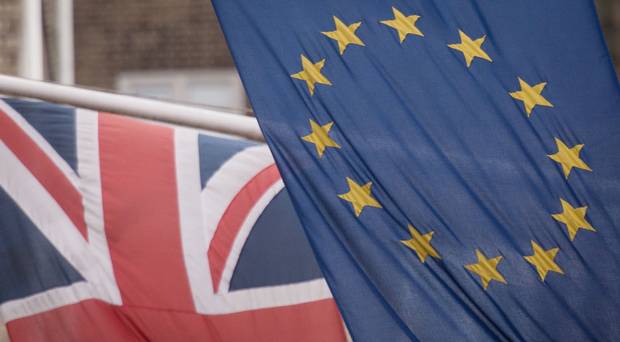Sterling fell on Tuesday after the opposition Labour party’s finance spokesman was quoted as saying few lawmakers would back Prime Minister Theresa May’s Brexit deal, and there was little sign of progress in the government’s talks with Brussels.
The British currency has dropped this week, reversing some of last week’s surge, as traders book profits and investors turn nervous again about the sort of divorce Britain and the European Union will have and when.
The pound, mostly flat earlier in the day, dropped 0.6 percent to a one-week low of $1.3097. It fell half a percent against the single currency to 86.47 pence per euro.
Analysts cited comments attributed to Labour’s John McDonnell saying that few Labour lawmakers would support May’s Brexit deal when it is voted on or by March 12, meaning it could be defeated given her lack of a reliable majority.
The pound was also hurt by media reports that Michel Barnier, the EU’s chief negotiator, and Britain’s attorney general were unlikely to make a breakthrough in talks in Brussels on Tuesday over tweaks to the Brexit deal demanded by hardline Brexiteers in her Conservative Party.
“It’s an excuse to take some profits,” said Kenneth Broux, an analyst at Societe Generale.
Sterling, one of the best performing major currencies so far in 2019, rose sharply last week as investors bet a no-deal Brexit could be avoided and Britain’s EU exit delayed.
If May fails to get her deal passed in parliament, lawmakers will be given a vote on postponing the EU departure date on March 29 to avoid an economically disruptive, no-deal Brexit.
“My overwhelming feeling is that there is too much good news priced into sterling. The market is too complacent,” said Stephen Gallo, an analyst at BMO.
Gallo believes there is a 53 percent chance of a no-deal Brexit, much higher than most banks, because a small Brexit delay does little to resolve deep divisions within May’s party over the best sort of break from the EU.
Earlier in the session sterling had been buoyed by data for the UK’s dominant services sector which, while still weak and pointing to an economy close to stagnation, came in slightly better than expected.
The IHS Markit/CIPS UK Services Purchasing Managers’ Index (PMI) suggested the world’s fifth-biggest economy would grow by just 0.1 percent in the first three months of 2019 compared with the last three of 2018.
But after touching its lowest level in January since immediately after the 2016 Brexit referendum, the services PMI edged up to 51.3 from 50.1, and a Reuters poll of economists had pointed to a weaker reading of 49.9 in February.












